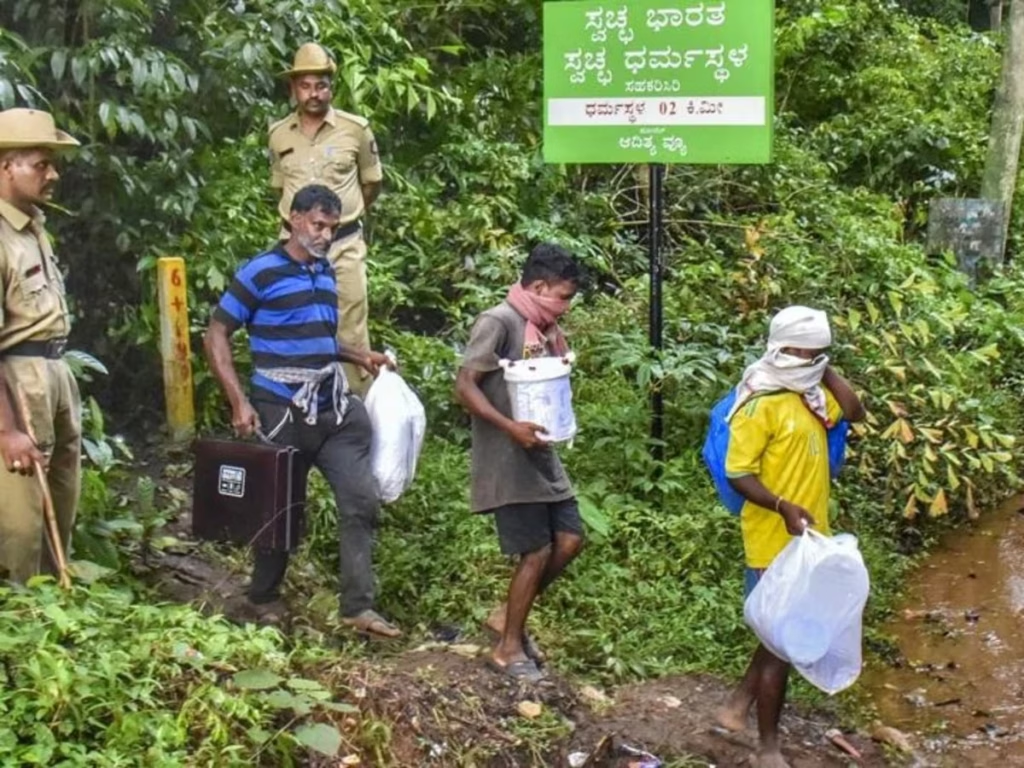Karnataka, August 2025 — A disturbing case has emerged from the temple town of Dharmasthala, Karnataka, where a whistleblower — a former sanitation worker — has alleged that he was coerced over 16 years to bury and burn the bodies of over 100 women and girls, many of whom were allegedly raped and murdered. The claims have triggered a full-scale investigation by a Special Investigation Team (SIT), which has already recovered skeletal remains and bone fragments from multiple sites near the Nethravathi River, forested areas, and temple premises2.
🦴 Forensic Evidence and Excavation Efforts
- The SIT has excavated over a dozen sites, with human remains confirmed at Site 6 and Site 14, including a skull, bones, and a red saree believed to belong to a female victim.
- Forensic teams are conducting DNA analysis to determine the age, gender, and cause of death of the recovered remains.
- Excavations are being carried out under the supervision of DGP P. Mohanty and DIG M.N. Anuchet, alongside forensic experts and revenue officials.
🧑⚖️ Whistleblower’s Testimony
The sanitation worker claims that between 1998 and 2014, he was repeatedly threatened and forced to dispose of bodies, many showing signs of strangulation, deep wounds, and sexual assault. He also alleges that his own minor relative was raped and murdered, and her body buried without legal documentation.
📍 Sites of Concern
- Burial sites are spread across temple grounds, dense forests, and riverbanks.
- A saree found hanging six feet up a tree has raised suspicions of ritualistic or symbolic violence.
- The SIT has now expanded its search to unmarked locations, based on the whistleblower’s evolving testimony.
🛑 Legal and Public Reaction
- The case has sparked nationwide outrage, with calls for transparency and accountability.
- Advocates have criticized earlier police inaction, and a second complaint has been filed alleging illegal burial without postmortem or FIR registration.
- The SIT is now investigating both complaints under separate crime numbers, and has vowed to continue excavations until all identified sites are searched4.
This case, unfolding near one of Karnataka’s most revered religious sites, has shaken public trust and raised urgent questions about institutional complicity, gender-based violence, and the sanctity of sacred spaces.


